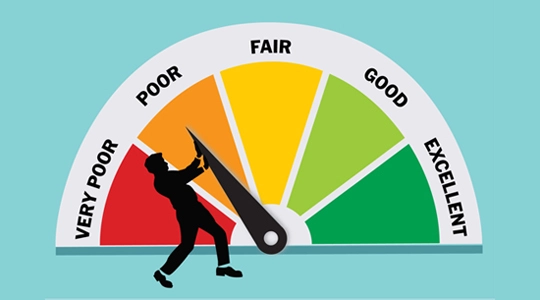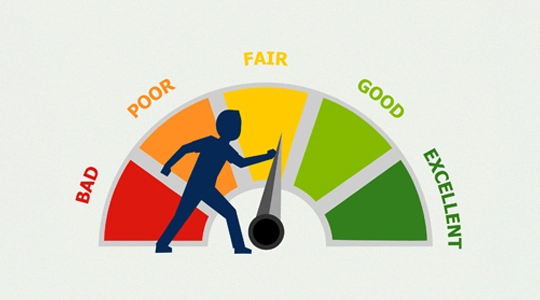Know How to Increase Your Credit Score and Get Better Rates
It appears that most of the people do not have the slightest idea of what their credit score is. It is hardly comprehensible how much significance credits scores have or how much they affect people’s everyday existence. This is the score that is used for considering your ability to qualify for a loan or the interest rates that you are charged. It can play a role in whether you will be able to secure a home or even get a cell phone plan. It is crucial to get familiar with credit and enhance the overall credit score as it directly impacts the interest rates and the conditions offered.
Good credit is the key to unlocking many doors in life and this article will seek to explain how and why this is the case.
A good credit score, such as 800, ensures you get the best interest rates that help you to shave thousands of dollars through loans and credit cards. For example:
- For instance, a man or woman who is qualified for a $300,000 30 year fixed mortgage rate yet with a 760+ credit rating could pay $200 less per month than a candidate with 620 credit score. Aimed at $72,000 less in interest to be paid once the loan period is over.
- For an individual with a poor credit rating, a credit card with an APR of 16% means that using the $2000 balance and failing to pay it out in full, one will end up paying $320 in interest only per month. For a card with APR for good credit of 6% annually, to accrue $100 in interest.
Credit also shows the lenders that you are capable of paying back any borrowed cash in the respective duration. This makes you look good for anything, be it a car or a house insurance, job applications, or even apartment rental.
Credit Score Basics: How is Credit Score Determined?
Your credit score is a numerical value that can be anywhere between three hundred and eight hundred and fifty. The factors that influence this three-digit number include: The factors that influence this three-digit number include:
Payment history (35% of score): Whether you take bills or credit card payments, loan, electricity, water etc., payments, whether they are made on time or not, delinquencies affect.
Credit utilization (30%): Total revolving outstanding balances divided by the total revolving credit limits available on all credit cards and lines of credit. The usage of over 30% limits can in fact reduce scores.
Credit history length (15%): The age of credit accounts for the specific consumer. Longer helps. Furthermore, closed accounts can be taken into consideration for 10 years.
New credit (10%): The results show that that opening many new accounts in a short period is associated with higher risk and lower scores.
Credit mix (10%): And have credit cards, installment loans, mortgage, etc., makes the scores better.
A credit score and report is a record of one’s credit history, the level of credit utilization, the number of credit cards, and the payment history.The first thing that one has to do to improve their credit is to understand their current credit status by accessing your credit score and credit reports from Equifax, Experian, and TransUnion. This helps you to know where you are at present and it also brings out the detrimental aspects that are lowering your score. Annualcreditreport.com is a website that offers free reports once within a year.
To get FICO score one can visit myFICO.com and order the specific score or turn to credit card and loan provider websites to find out the scores they employ in the decision-making process. Review your reports and eliminate any errors that you find as well as challenge any information that is deemed to be wrong, obsolete or unproven. This may help with increasing your score.
Improve Your Credit Score
Once you understand where your credit stands and what's influencing your score and reports, you can take actions to improve it: Once you understand where your credit stands and what's influencing your score and reports, you can take actions to improve it:
At least pay all bills on time – Thus, use auto – payment or reminder services so that one should not forget about the bills. Reducing late payments by an amount increases the scores by a significant extent.
Fewer credit cards - Close unused accounts except for those that have been active for a long period and have a positive history. They need to consider specifically, requesting credit line increases.
The credit history should be allowed to develop – This is because account activity does not harm credit but the opposite is true. Maintain existing credit.
Maintain a good credit standing – New account applications must be spread out and it is not wise to apply for multiple credit that would result to many hard credit inquiries.
Pay down credit utilization – Aim at increasing the credit mix, for example, get an installment loan or a secured credit card to develop a healthy positive payment history.
The credit score is something that used to confuse me or rather I never cared much about it, until I realized that doing all you can to try and get a better score is something that will help you get better rates on loans that can save you real money monthly as well as annually. Keep on checking your reports, contest for the mistakes that you find, make your payments on time and embrace the good practices on credit and you will find yourself with higher scores in the long run.
We have the tools to help you fix your credit. Give us a call for a FREE credit report consultation
Factors that affect your credit scores
Payment history
Payment history is one of the most important factors that lenders consider when evaluating a potential borrower's creditworthiness. Payment history is a record of whether or not an individual has paid their bills on time and in full. This information is used to determine an individual's credit score, which can be used to determine how likely they are to default on future payments. In addition, payment history can also be used by employers and landlords to evaluate potential employees and tenants.
.webp)

Credit usage or utilization
Credit utilization is the amount of credit you use compared to the total amount of credit available to you. It is an important factor that lenders consider when evaluating your creditworthiness. Your credit utilization ratio helps lenders determine how likely you are to pay back a loan or other type of debt. The lower your utilization ratio, the better, as it shows lenders that you are not over-reliant on borrowed money and can manage your finances responsibly.
Length of credit history
The length of your credit history is an important factor when it comes to determining your credit score. A longer credit history generally indicates a better score, as it can show lenders that you have a track record of managing debt responsibly over time. It also helps lenders assess your risk level and determine whether or not to approve you for a loan or line of credit. Therefore, having a long credit history can be beneficial in many ways and can make it easier for you to get approved for loans with better terms and lower interest rates.


Credit mix and types
Credit mix and types are important factors when it comes to understanding your overall financial health. Having a good credit mix and understanding the different types of credit available can help you make informed decisions about how to manage your finances.
Credit mix refers to the different types of credit accounts you have, such as a mortgage, car loan, or student loan. Each type of account has its own unique requirements and benefits that can affect your overall credit score.
Factors that don’t affect your credit scores
- Income level: Your income is not a factor in determining your credit score.
- Employment status: Whether you're employed, unemployed, or self-employed doesn't impact your credit score.
- Savings and investments: Your savings accounts, investments, and assets have no bearing on your credit score.
- Age and marital status: Credit scores are based solely on credit history, not age or marital status.
- Race, ethnicity, or religion: Your demographics are not considered when calculating credit scores.
- Checking your score: Checking your credit score through credit bureaus won't harm your score.
- Soft inquiries: Soft credit inquiries, like background checks or pre-approval checks, don't affect your score.
Credit Score FAQ
1. What is a good credit score?
A good credit score is usually considered to be above 700 and it can help you qualify for loans and other forms of financing.
2. How to check credit score for free?
Call on (888) 803-7889 & know your credit score for free!
3. What is the highest credit score?
850 is highest credit score in all the credit burure.
4. what credit score is needed to buy a house?
Having a stellar credit score of 620 or higher can boost your chances of being approved for conventional loan options. Achieving such an impressive rating is key to financial success!
5. What credit score is needed to buy a car?
Achieving a good credit score is key for those looking to finance an automobile. Although 600 is the standard, lenders may require different scores depending on their criteria.